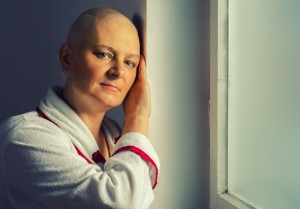
In the Woodland we are used to simultaneous broadcasts from across the Elf family and in August this year The Lancet followed suit with three papers published from the Lancet family: The Lancet Psychiatry, The Lancet, and The Lancet Oncology.
The studies were conducted by researchers at the Universities of Oxford and Edinburgh and looked into major depression in patients with cancer.
Depression and cancer: why is this important?
Major depression is a leading cause of disability worldwide and when comorbid with a chronic disease it is associated with reduced quality of life and increased health-care costs. Cancer is becoming a chronic disease for a rapidly increasing number of people; in the UK alone more than 3 million people are expected to have a diagnosis of cancer by 2030.
As all good Liaison Services will be able to tell you, patients with cancer and comorbid depression have worse anxiety, pain, fatigue, and functioning than do other patients with cancer. They are also more likely to have suicidal thoughts, and to have more difficulties with adherence to cancer treatments.

Patients with cancer and comorbid depression have worse anxiety, pain, fatigue, and functioning than do other patients with cancer.
Depression and cancer: the new Lancet evidence
I am going to give a synopsis of the three papers, and have provided the links for those wishing to look more in depth at each.
Major depression is common in cancer patients
This study found that:
- Major depression is more common in patients with cancer than the general population
- 73% of patients were not receiving potentially effective treatment
The Lancet Psychiatry paper presented data from patients with breast, lung, colorectal, genitourinary, or gynaecological cancer who had participated in routine screening for depression in cancer clinics in Scotland, between May 12, 2008, and Aug 24, 2011.
Depression screening was done in two stages:
- First the Hospital Anxiety and Depression Scale;
- Then, using the major depression section of the Structured Clinical Interview for the Diagnostic and Statistical Manual of Mental Disorders, 4th Edition
The study analysed data for 21,151 patients.
The prevalence of major depression was:
- Lung cancer (13·1%, 95% CI 11·9 to 14·2%)
- Gynaecological cancer (10·9%, 9·8 to 12·1)
- Breast cancer (9·3%, 8·7 to 10·0)
- Colorectal cancer (7·0%, 6·1 to 8·0)
- Genitourinary cancer (5·6%, 4·5 to 6·7)
A diagnosis of major depression was more likely in patients who were younger, had worse social deprivation scores, and, for lung cancer and colorectal cancer, female patients.

Major depression is far more prevalent in patients with cancer.
‘Depression Care for People with Cancer’ was strikingly more effective at reducing depression in patients with good prognosis
The Lancet paper published information from the SMaRT Oncology-2 trial which is a parallel-group, multicentre, randomised controlled effectiveness trial, looking at the highlighted problem of inadequate treatment.
This evaluated the effectiveness of a new treatment programme called ‘Depression Care for People with Cancer’ (DCPC). DCPC is delivered by a team of specially trained cancer nurses and psychiatrists, working in collaboration with the patient’s cancer team and general practitioner (GP), and is given as part of cancer care. It is a systematic treatment programme that includes both antidepressants and psychological therapy.
The initial treatment phase comprises a maximum of ten sessions with the nurse (at the cancer or primary care clinic, or if necessary by telephone) over a 4-month period. After this initial treatment period, PHQ-9 scores are monitored monthly by telephone (through an automated system supplemented by nurse calls) for a further 8 months; additional sessions with the nurse are provided for patients not meeting treatment targets.
The trial, involving 500 adults with major depression and a cancer with a good prognosis (predicted survival more than 12 months) compared DCPC with usual care; as provided by a patient’s GP who may prescribe antidepressants or refer patients to mental health services for assessment or psychological treatment. Response to treatment was classified as at least a 50% reduction in the severity of their depression.
At 6 months:
- 62% of the patients who received DCPC responded to treatment
- 17% of those who received usual care responded to treatment
This benefit was sustained at 12 months. DCPC also improved anxiety, pain, fatigue, functioning, and overall quality of life. Moreover, the cost of providing DCPC was modest (£613 per patient) making it a cost-effective way to improve cancer patients’ quality of life.
The huge benefit that DCPC delivers for patients with cancer and depression shows what we can achieve for patients if we take as much care with the treatment of their depression as we do with the treatment of their cancer.
– Professor Michael Sharpe from the University of Oxford

‘Depression Care for People with Cancer’ is a systematic treatment programme that combines antidepressants and psychotherapy.
‘Depression Care for People with Cancer’ also improves depression and quality of life in patients with poor prognosis
Finally, to see if patients with a poor cancer prognosis could also benefit from this approach, The Lancet Oncology published the SMaRT Oncology-3 randomised trial. This tested a version of DCPC adapted for patients with a typically poor prognosis cancer (lung cancer).
The trial, involving 142 patients with lung cancer and major depression, found that those who received the lung cancer version of DCPC had a significantly greater improvement in depression than those who received usual care during 32 weeks of follow-up.
The lung cancer-specific version of DCPC also improved self-rated depression, anxiety, quality of life, role functioning, and perceived quality of care.

Talking therapies can aid quality of life even in cancers with poor prognosis.
Larger trials are now needed to estimate the effectiveness and cost-effectiveness of this care programme in this patient population, and further adaptation of the treatment will be necessary to address the unmet needs of patients with major depression and cancer, irrespective of prognosis.
Patients with lung cancer often have a poor prognosis. If they also have major depression that can blight the time they have left to live. This trial shows that we can effectively treat depression in patients with poor prognosis cancers like lung cancer and really improve patients’ lives.
– Dr Jane Walker from the University of Oxford and Sobell House Hospice in Oxford.
Links
Walker J, Hansen CH, Martin P, Symeonides S, Ramessur R, Murray G, Sharpe M. Prevalence, associations and adequacy of treatment of major depression in 21 151 cancer outpatients: a cross-sectional analysis of routinely collected clinical data. The Lancet Psychiatry, Volume 1, Issue 5, Pages 343 – 350. Published Online: 28 August 2014
Sharpe M, Walker J, Hansen CH, Martin P, Symeonides S, Gourley C, Wall L, Weller D, Murray G, for the SMaRT (Symptom Management Research Trials) Oncology-2 Team. Integrated collaborative care for comorbid major depression in cancer patients (SMaRT Oncology-2): a multicentre randomised controlled effectiveness trial. The Lancet, Volume 384, Issue 9948, Pages 1099 – 1108. Published Online: 28 August 2014
Walker J, Hansen CH, Martin P, Symeonides S, Gourley C, Wall L, Weller D, Murray G, Sharpe M, for the SMaRT (Symptom Management Research Trials) Oncology-3 Team. Integrated collaborative care for major depression comorbid with a poor prognosis cancer (SMaRT Oncology-3): a multicentre randomised controlled efficacy trial in patients with lung cancer. The Lancet Oncology, Volume 15, Issue 10, Pages 1168 – 1176. Published Online: 28 August 2014

RT @Mental_Elf: Depression and cancer: http://t.co/SznJ1IruQ1 | #CounsellingNews #counselling #psychotherapy #mentalhealth #fb
Depression and cancer: Lancet papers on prevalence and integrated collaborative care http://t.co/eJasOD3gPI
RT @Mental_Elf: Depression and cancer: http://t.co/AliRQwuVoe
#Depression and #cancer: Lancet papers on prevalence and integrated collaborative care http://t.co/fNrXs8bFP8
@Mental_Elf: Depression and cancer: http://t.co/VaBy06m4F3 The latest in my liaison themed elf blogs
Depression is under recognised and under treated in cancer: 3 Lancet papers on collaborative care http://t.co/SX5NxxvgOE via @sharethis
“Depression and cancer: Lancet papers on prevalence and integrated collaborative care”: Overcoming mind/body dualism. http://t.co/qYt35OKGgP
The Mental Elf liked this on Facebook.
Depression and cancer: Lancet papers on prevalence and integrated collaborative care: Kirsten Lawson highlight… http://t.co/hnXdWGiTUJ
Today @LiaisonLawson highlights 3 new papers on #depression in #cancer from @TheLancet @LancetPsych @TheLancetOncol http://t.co/AhEcniiQA0
Depression and cancer http://t.co/vPwQDqbTxc
Kirsten Lawson McKenzy liked this on Facebook.
June Dunnett liked this on Facebook.
@profmsharpe Showcasing your fine work: Depression and cancer: http://t.co/VaBy06m4F3 @Mental_Elf
@LiaisonLawson @Mental_Elf
thank you
@profmsharpe
Depression and cancer: Lancet papers on prevalence and integrated collaborative care http://t.co/4y1ontkolj via @Mental_Elf
Read our blog on prevalence of depression in cancer & efficacy of ‘Depression Care for People with Cancer’ programme http://t.co/AhEcniiQA0
Important research RT @Mental_Elf: Today @LiaisonLawson highlights 3 new papers on #depression in #cancer http://t.co/kTWBirdDFu
Three new Lancet papers on depression and cancer. Worth a read! http://t.co/6PnLtHHh3I @Mental_Elf @TheLancet
RT @Mental_Elf: Depressed cancer patients have worse anxiety, pain, fatigue & functioning than other patients with cancer http://t.co/AhEcn…
Up to three-quarters of depressed cancer patients don’t receive effective treatment for their depression http://t.co/AhEcniiQA0
@Mental_Elf Very appretiative to the care and support my younger sister and her team of nurses who give support to the patient and families.
Most depressed #cancer patients don’t receive effective treatment for their #depression http://t.co/OsMHTPHBRa via @Mental_Elf
Mental Elf: Depression and cancer: Lancet papers on prevalence and integrated collaborative care http://t.co/MiZcbKdV63
Depression and cancer: Lancet papers on prevalence and integrated collaborative care http://t.co/A5JHwqLHff via @sharethis
RT @Mental_Elf: Don’t miss: Depression and cancer: http://t.co/AhEcniiQA0
RT @AlysColeKing: Really great Blog @LiaisonLawson Depression & cancer: Lancet papers on collaborative care http://t.co/7SdR52SWHd via @Men…
RT @SMART_Beds: Great blog on the prevalence of #depression in #cancer & efficacy of #care programmes! http://t.co/yZcakZyg6j via @Mental_E…
RT @Mental_Elf: Find out how integrated collaborative care can help cancer patients with depression http://t.co/AhEcniiQA0
Depression & cancer: Lancet papers on collaborative care http://t.co/7gWRzpwnF5 via @Mental_Elf @sharethis”#bpsfacchp
Great @Mental_Elf blog on depression & cancer http://t.co/5X6wtcZIKd This was our take on @TheLancet studies at time http://t.co/LSPhxR99mX
.@joinmq @Mental_Elf @TheLancet RE depression, cancer. Actually, cancer pts on average have no more depression vs other medical conditions.
@CoyneoftheRealm @joinmq @Mental_Elf new prevalence rates for 2,141 cancer patients, work by @anjamehnert1 et al. http://t.co/ocbalJj00v
.@SigrunVehling @joinmq @Mental_Elf @anjamehnert1 Well controlled comparisions w/ other illnesses show little excess of depression w/ cancer
Find out how integrated collaborative care can help #cancer patients with depression http://t.co/CGXrXMXHFc vía @Mental_Elf #Depresión
“We can effectively treat depression in patients with poor prognosis cancers” – Dr Jane Walker. See more at: http://t.co/BJtNbch9xk
Belang (h)erkennen relatie tussen depressie en kanker: bespreking artikel van @TheLancetPsych door @Mental_Elf http://t.co/vPspVy3PwS
[DEPRESSION]
The impact of depression as a comorbidity of cancer is gaining more attention, research and support…. http://t.co/mIR96reSlu
,RT @Mental_Elf: Depressed #cancer patients have worse anxiety, pain, fatigue than other patients with cancer http://t.co/kTWBirdDFu
.RT @Mental_Elf: Up to three-quarters of depressed #cancer patients don’t receive effective treatment for depression http://t.co/kTWBirdDFu
Most popular blog this week? It’s @LiaisonLawson on depression and cancer: http://t.co/AhEcniiQA0
Awww thanks! #elfblush @Mental_Elf: Most popular blog this week? It’s @LiaisonLawson on depression and cancer: http://t.co/VaBy06m4F3
[…] http://www.thementalelf.net/mental-health-conditions/depression/depression-and-cancer-lancet-papers-… […]
[…] From a Woodland perspective we are often interested in the overlap between physical and mental health. In November 2014 this little elf wrote a blog summarising the work published across the Lancet journals on the prevalence of depression in a variety of cancers and the effects of integrated collaborative care. […]
[…] year ago, I reported on the collaborative care project for depression and cancer, which showed very positive results. From a wider strategic perspective the 5 year forward view’s […]